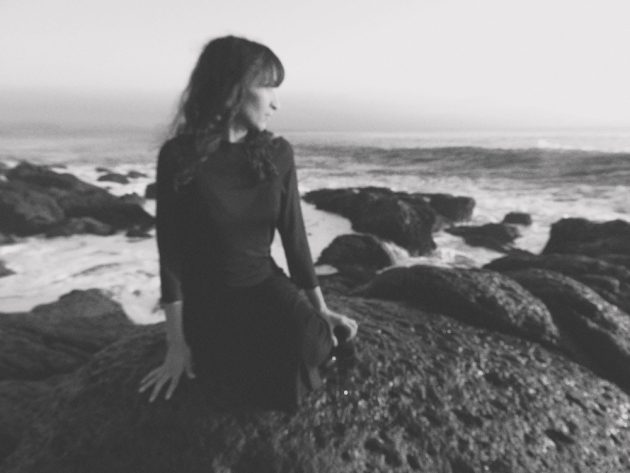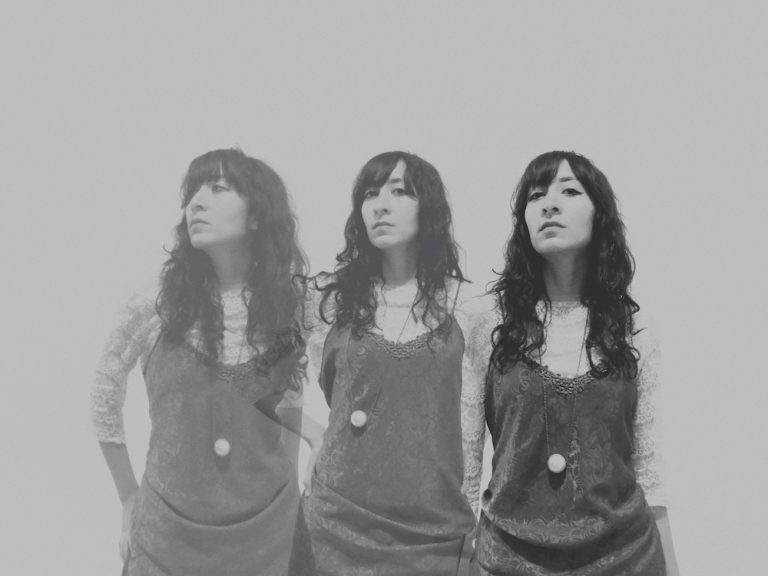Mexican artist Lorena Quintanilla creates music under the name J. Zunz, and today she has released her new album Hibiscus through Rocket Recordings. The eight-track record is a throbbing missive, sonically involving and packed with emotion.
Quintanalla has taken the time to tell us about each track on Hibiscus, explaining the background that went into the creation of these engrossing pieces.
1. “Y”
This track talks about my experience growing up as a woman in México. I’m telling all the tactics I had to develop in order to be safe out there. Men made very clear to me since I was very young that the streets didn’t belong to me, and that it was out of question to take a walk alone at night if I wanted to. My body was theirs. Those were the first warnings I had. The others came later; the harassment at work places, at school, at music venues, some male sound engineers, some male musicians, the outdated male critics, the structure, the laws, and so on and so on. It is a never ending list and as I keep going more horrific details reveal. Nonetheless, I’ve been very lucky somehow, but many women in México are not. Sadly the numbers of feminicides are going up every year.
2. “Four Women and Darkness”
I worked hard on this song, trying to erase any vulnerability on it. I changed the vocal melody several times until I found a neutral tone. I also simplified and modified the bassline from the original demo. It’s a track dedicated to my grandmother and her sisters and a shocking story she used to tell me when I was a kid, about them during wartime, hidden for hours from soldiers while they were searching their house, as it was well known that they used to rape women and little girls. That story haunted me for years and because of this, I was reaching for some strength inside of the song, trying to expel the accumulated fear instead of reinforcing it. The story is dark but it also shows how some women through time have to develop the ability to protect and take care of each other in order to survive and to keep going.
3. “Júpiter”
A friend at a party was telling stories about the primal scream therapy in the 60s and 70s. He was talking about John Lennon using it, and how he thinks it changed his way of singing. He said that the technique somehow liberated his voice. I found all this information very interesting. Months after, I had a very strong cold in the middle of a tour in 2018. My throat was the most affected and I wasn’t able to sing for days. After that, I felt that something was stuck in my throat. I’ve been interested for years in singing more and more quietly, but at the same time I was missing the energy that you can feel when you scream or sing out loudly. It is very liberating. That is why I decided to experiment with screams at the end of this track. I recorded many of them. When I finished the recordings I was feeling so good, very light. I highly recommend it to anyone.
4. “33:33”
This song was the first I wrote for the album. I wrote it at the beginning of 2018. By that time, I was living in a house where I wasn’t able to rehearse or play loudly as I used to. I plugged in a synth instead of my guitar and started experimenting with it. I was trying to connect with it as I had never written a song on any other instrument than my guitar or a piano. I had interest in the arpeggio as I’m used to writing songs with a loop pedal, I thought the arpeggio would be something similar. This song came to me immediately, like if it had been cooking inside of me for a while. I wrote it from beginning to end, vocal melody included. So easy and so effortless. Writing this song made me feel that I was ready to start a new album.
5. “White Labels”
This song was made in order to have a sonic hole/abyss in the middle, some kind of gap. That’s the image that I was having in mind while I was recording it. I wanted to feel some vertigo inside the song. As I was working on it, I felt like I was falling deeper and deeper and at some point it was like a bottomless space. As in the depths of the unconscious, inside of this sonic hole the sounds may be deformed and start to change into something else. That middle part is not as long and profound as I had imagined it, but it worked ok. I think that part has some kind of hopelessness vibe. I matched that feeling with the song title and the lyrics, referring to the suffocating white structure above us and the infinite waves of consequences coming out of it.
6. “Overtime”
I don’t own a piano and I don’t know how to play one but for some reason I always feel attracted to them. If I see one, I’ll try to play it when nobody is listening as I’m ashamed of my very basic skills. I wrote “Overtime” on a piano sitting in a friend’s house. It was the day after I finished a long tour. My friend went out and I was feeling very exhausted, as if something had drained all the energy from my body. I started to play the piano to feel better and it actually helped me. Some melodies came out and I recorded them on my phone. I kept working on them months later during a period of insomnia that I had and they formed into this song. I used to play this song at night on my guitar very quietly so I wouldn’t wake up my roommate trying to find a vocal melody. I think it is an easy song with a lullaby vibe on it. It’s a song dedicated to the moon who was my friend during those long and lonely nights.
7. “America is a Continent”
The title of this song started as a joke but then it became something else. I’m constantly repeating this phrase every time I tour Europe, because sometimes when people ask me something about America and the question is out of context, I really don’t know if they are referring to the continent or the United States. Of course I know this confusion is branded by the US so with a further analysis about it, it made me think deeply about the power and domination that is spread through language and how easy it is to make someone or something invisible.
8. “Ouve-Me”
I didn’t know “Ouve-Me” would be part of Hibiscus. I started writing the song right after I finished recording the last details of the album. I was fooling around with a synth and a melody came out. I recorded it on my phone. I liked it so much that I almost felt sad because I thought that it had come too late. I was already too excited about finishing an album that I never thought about working on a new song at that point. Luckily when I sent the album to Rocket, they told me they felt it was a little too short. So I just jumped into this song and worked on it. Now it is one of my favorites from the album. The song title is inspired by a photograph of Helena Almeida and the music is inspired by a piece of Jacqueline Nova.
J. Zunz’s new album Hibiscus is out today on Rocket Recordings. You can buy it on Bandcamp, and follow her on Facebook, and Instagram.


